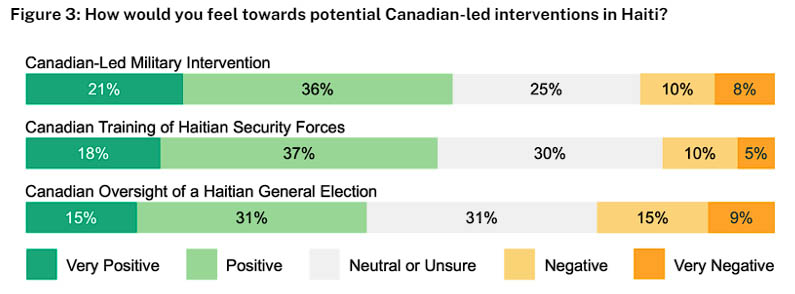The international community is searching for a convincing response to the Haiti crisis. Last week the UN High Commissioner called for the deployment of a ‘specialized support force’. Three days later, President Biden and Prime Minister Trudeau struck a more cautious tone at a joint press conference, focusing on efforts to bolster local forces and keep Haitians at ‘the heart of the solution’. Their restraint is understandable given Haiti’s history of colonial occupation and failed interventions. However, being half-in on a Haiti policy may fail to achieve more than spreading blame between its many supporters. Ottawa has deployed long-range patrol aircraft and coastal defense vessels to the bemusement of one observer who quipped ‘We don’t have problems with the birds or the fish.’
Meanwhile, the situation on the ground is deteriorating. Gang-related violence has intensified, with 208 people killed in the first two weeks of March. Food insecurity has spread, with 4.9 million people in acute hunger, increasing the lingering threat of cholera.
Premise has been asking Haitians about their preferred route out of this crisis since it began. With international attention waxing, we again asked them what they thought of the proposed initiatives and calls for a Canadian intervention.
Premise’s Approach
Our findings draw on 2,610 responses to six surveys: three conducted from February 9 to February 15 and three conducted from March 19 to March 30. The resulting data was enriched by a series of video responses.
Where data from February and March has been compared, all underlying methodologies were identical, ensuring accurate measurement of change over time.
The Results
61% of respondents were aware of Canadian naval operations around Haiti, suggesting a high level of public and media interest which is likely to result in intense scrutiny of any future deployment.
However, perceptions of this operation were less positive than those of Royal Canadian Air Force patrols in February (Figure 1). Free-text responses suggest that the dominant narrative portrays the naval deployment as empty posturing, with one respondent declaring: ‘the bandits are not on the sea’.


Support for other responses remained strong, with positive attitudes towards Canadian electoral oversight at 46%. However, trust in domestic political structures remained low. Belief that free and fair elections were possible decreased and support for the High Transitional Council which would facilitate them fell to 10%.

Domestic political parties were associated with gang activity by 77% of respondents, with four of six metrics indicating increased gang violence and territorial and societal control. These results reflect the reality of the deteriorating security situation reported by the UN’s High Commissioner. In this context respondents had more trust in international action than domestic political change.
Respondents expressed a preference for any international intervention in Haiti to be led by Russia (Figure 3). It is likely this reflects frustration with traditional NATO-aligned partners and the perceived inability or unwillingness of other states to intervene.
The share of respondents who preferred Canada as a partner fell from 23% in February to 12% in March.
Figure 4: Which country would you prefer to lead a military intervention in Haiti?

About Premise
Premise’s software empowers the world’s leading companies and public organizations to collect crowdsourced information from real people all over the world, often in traditionally hard-to-reach places.
Over five million people in 140 countries are contributing to the Premise app on their smartphones, enabling our customers to understand audiences, measure effects and monitor perspectives over time in order to employ a data-driven approach to timely decision-making. To learn more about Premise, read about our use cases or get in touch with us.